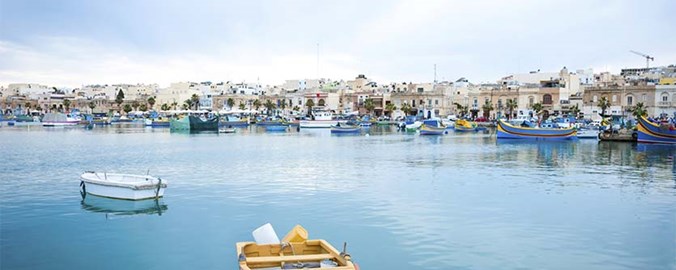
Malta Issues 100 Golden Visas in 12 weeks
Malta's Individual Investor Programme (IIP) has resulted in more than €100million in foreign direct investment from its 100 applicants since the scheme finally started in February, according to the British firm running the scheme.
The country's version of the 'Golden Visa' scheme which provides citizenship to investors purchasing real estate in excess of €650,000 has sparked controversy, leading to the programme almost being scrapped in February of this year, a move that was only prevented when the government made minor amendments to the programme.
The controversial scheme has been criticised because the British company administrating the scheme stand to make "disgusting amounts of money" by effectively selling EU passports to tycoons and celebrities in order to generate an estimated €1.bn in FDI revenue for the cash-strapped island.
Henley & Partners, a private company registered in Jersey have not only designed the IIP but is also subcontracted by the government to recruit applicants and weed out criminals, terrorists and other questionable characters.
Eric Major, the chief executive of Henley & Partners said that Iranian and Syrian applicants would not be accepted because of the international sanctions imposed against those countries. He said those interested in the programme came mainly from countries from which travel is restricted.
"They can get the travel monkey off of their backs," said Major adding that those with criminal records need not apply.
Under its contract with the government, Henley gets a 4% commission on the €650,000 investment and also charges client fees of €70,000 for each applicant. After vetting applicants, Identity Malta, a government agency, will make a final decision based on Henley's recommendations. Henley will get its commission only if an applicant is accepted.
The programme officially started in February and has already attracted interest from hundreds of applicants including Chinese Billionaires, wealthy Russians and executives from countries like Saudi Arabia, Iraq, United Arab Emirates and Libya.
Despite Maltese officials saying that the programme has been designed to attract foreign investment and lift the economy, critics fear that in a race for cash, the screening process will be short-changed, particularly with the involvement of Henley which stands to make tens of millions of euros in commissions if applicants are accepted.
The programmes critics say most potential applicants have no interest in Malta per se, but covet a European Union passport which allows them to live or work elsewhere in the union, including London or Paris.
After being threatened with legal action by the European Commission, Malta tightened the IIP in January 2014 adding a one-year residency requirement before an applicant can get a passport. However, the Maltese government said at the time that residency would not be subject to being in the country for any given period - if at all.
Kurk Farrugia, a spokesman for Malta's government denies criticism that the programme is a get-rich-quick scheme that would expose Europe to a flood of very wealthy undesirable entrants, saying that "we are not trying to make a quick buck. We are a small country and we want people to know about us and invest in us."
While the government states categorically it will have the last word on all applicants under the programme, Henley has also confirmed that there is no conflict of interest due to the strict separation of their marketing and vetting departments.
Despite the controversy and opposition, Malta's IIP has already seen a significant take up and looks set to continue successfully attracting wealthy investors from non-EU countries under the terms of its' Individual Investor Programme

